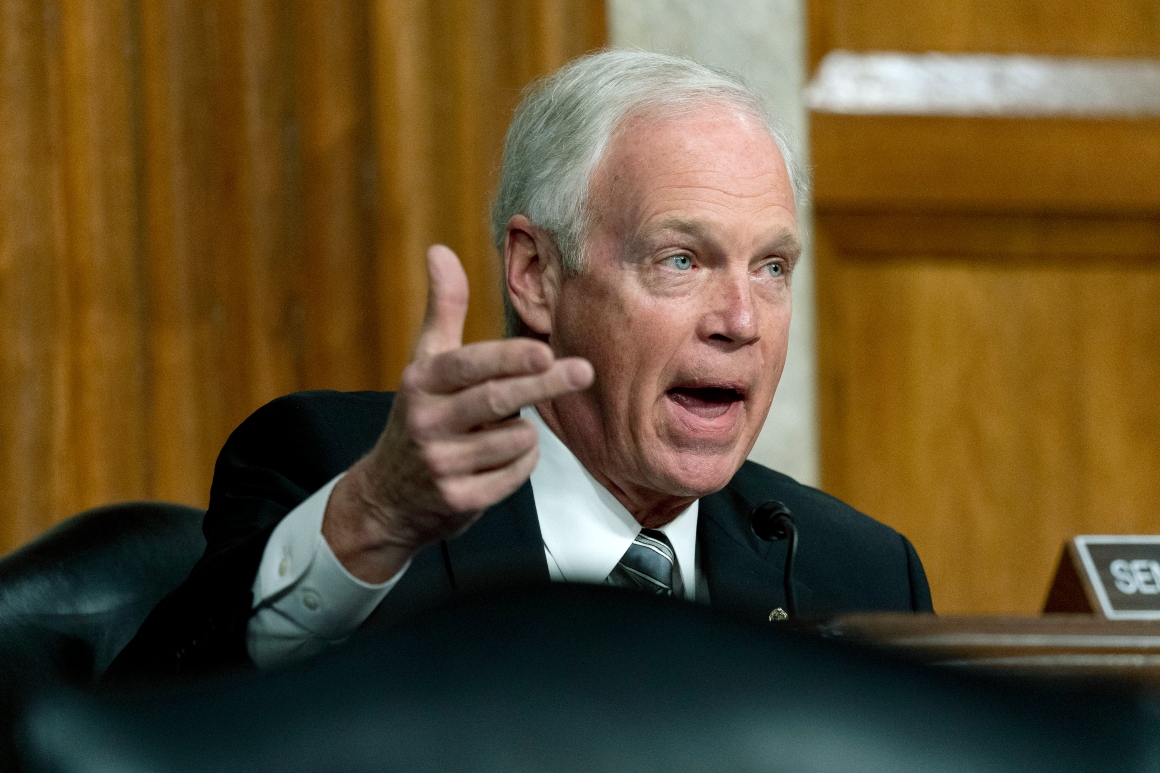Sen. Ron Johnson Takes Bold Action to Unveil Fauci’s Hidden COVID-Era Emails—What Could Be Revealed?
Sen. Ron Johnson Takes Action to Expose Fauci’s COVID-Era Emails—What’s in Store?
With the Republican Party regaining control of the Senate, Wisconsin Senator Ron Johnson is taking swift action to uncover critical documents related to the COVID-19 pandemic response. As the chairman of the Permanent Subcommittee on Investigations, Johnson has issued a subpoena to the Department of Health and Human Services (HHS) for key documents, including emails from Dr. Anthony Fauci, the former director of the National Institute of Allergy and Infectious Diseases. The move, which was confirmed by The Blaze, was announced on Wednesday, coinciding with a Senate Finance Committee hearing regarding Robert F. Kennedy Jr.’s nomination for a role at HHS.
Known for his outspoken advocacy for government transparency, Sen. Johnson made it clear that this subpoena is just the beginning of his efforts to investigate the COVID-19 response. “Yesterday, I subpoenaed HHS for documents related to the government’s handling of the COVID-19 pandemic, including specific requests for Dr. Fauci’s emails and information about the safety and development of COVID-19 vaccines,” Johnson stated.
In his announcement, Johnson criticized the Biden administration for withholding crucial information for years, leaving both Congress and the public without answers. He emphasized the need for accountability and transparency within U.S. health agencies. “These documents should have been made available years ago, but they were withheld. Accountability and transparency must be restored,” Johnson remarked. He also expressed confidence that HHS would comply with the subpoena, setting a firm deadline for officials to provide the requested documents by February 18.
Sen. Johnson’s demand for transparency comes after years of frustration with the federal government’s response to the pandemic. He revealed that he had sent over 70 oversight letters inquiring about the government’s actions during the COVID-19 crisis, but most of these letters were ignored or inadequately addressed by the Biden administration. Now, with Republican control of the Senate, Johnson is ramping up the pressure, insisting that HHS provide the documents and answers that he believes are essential to understanding the full scope of the government’s pandemic response.
In addition to the documents Johnson is requesting, a controversial detail has surfaced regarding Dr. Fauci’s last days in office. Just before the end of the Biden administration, President Joe Biden issued a last-minute pardon for Dr. Fauci, which many critics viewed as an effort to protect Fauci from potential legal challenges under a future Trump administration. At the time, Biden defended his decision, calling investigations into Fauci “politically motivated” and asserting that they could harm the lives of those involved. Critics, however, believed that the pardon was intended to shield Fauci from future legal repercussions.
This move has not gone unnoticed, and Johnson has been vocal in his calls for more answers. He has long questioned the handling of the COVID-19 pandemic and raised concerns about the potential missteps of public health agencies. As part of his ongoing oversight efforts, Johnson has been vocal about what he believes are glaring gaps in the transparency of the federal government’s pandemic response. His work to subpoena HHS documents is seen as a crucial step in uncovering what he believes is hidden from the American public.

As the February 18 deadline approaches, Johnson’s investigation could reveal important details about the government’s COVID-19 response, particularly concerning vaccine safety, the role of Dr. Fauci in shaping public health policy, and how decisions were made during the pandemic. While Johnson continues to push for answers, his efforts are likely to intensify as the investigation unfolds and the pressure on HHS mounts.
In summary, Senator Ron Johnson’s move to subpoena HHS documents, including emails from Dr. Fauci, marks the beginning of a broader effort to bring transparency and accountability to the U.S. government’s COVID-19 response. With a February 18 deadline looming, the outcome of this investigation could provide significant insights into the decisions made during the pandemic and the role of key figures like Fauci. As the investigation continues, the pressure on the Biden administration to release the documents is expected to grow, with Johnson making it clear that this is just the start of his commitment to oversight and transparency.
